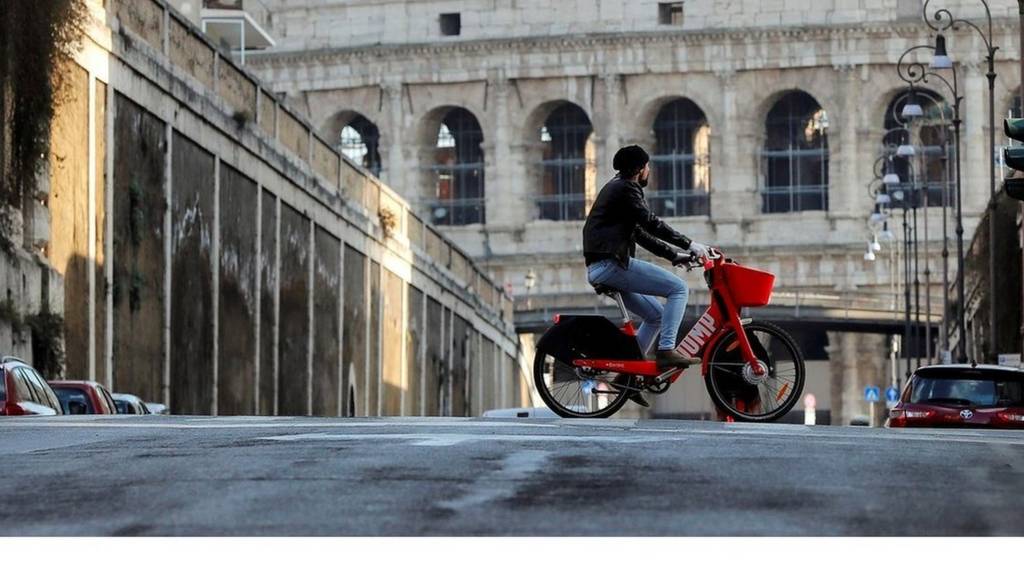
Italy deaths soar again as UK to close schools
Italy deaths rise by record number; What happens now with UK schools?; US-Canada border to close ; How to protect yourself ; NHS staff 'lack protections'; Pound plunges to 30-year low
Related Video and Audio
RTL
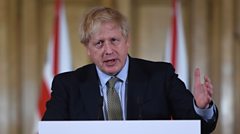

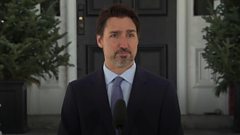
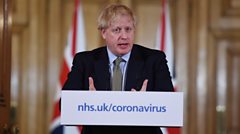
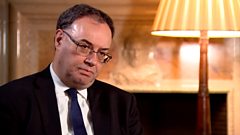
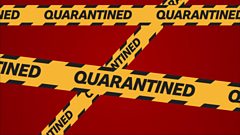
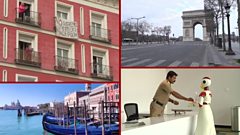
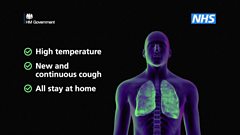
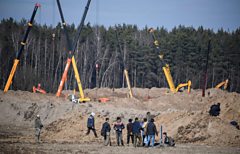

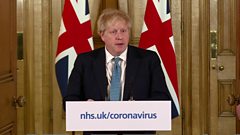
Live Reporting
Gareth Evans, Robert Greenall, Joshua Cheetham, Kevin Ponniah, Emma Owen, Jennifer Scott, George Bowden, Patrick Jackson, Ashitha Nagesh, Claudia Allen, Mary O'Connor, Gavin Stamp, Saira Asher and Andreas Illmer
All times stated are UK
- The UK announced it would shut all schools from Friday in a bid to control the spread of the virus. Exams will not go ahead in England and Wales, but decisions are due to be made in Scotland and Northern Ireland
-
The death toll in Britain reached 104 after a further 33 people died. Confirmed cases rose to 2,626
- The number of deaths in Italy spiked by 475 in one day to nearly 3,000, the biggest increase since the outbreak. There are a total of 35,713 confirmed cases in the country
- The pound fell to its lowest level against the dollar since 1985, trading at just $1.15 by the end of the day
- US President Donald Trump and Canadian Prime Minister Justin Trudeau agreed to close the US-Canada border to all non-essential travel
- Mr Trump also said the US government's housing agency would stop repossessing homes until the end of April. Evictions will be suspended over the same time frame
- The Eurovision Song Contest was cancelled.
-
Meanwhile, it became clear that many Asian nations are facing an uphill battle to stem the spread of the virus
-
There are now more than 205,000 cases of the virus globally and there have been at least 8,000 deaths

Getty ImagesCopyright: Getty Images -
China: 81,102
-
Italy: 35,713
-
Iran: 17,361
-
Spain: 13,910
-
Germany: 12,327
-
France: 9,134
-
South Korea: 8,413
-
USA: 7,757
-
Switzerland: 3,028
-
UK: 2,626

BBCCopyright: BBC 
Getty ImagesCopyright: Getty Images 
EPACopyright: EPA 
Getty ImagesCopyright: Getty Images 
AFPCopyright: AFP A sign above a street in Venice reads: "Everything will be alright."Image caption: A sign above a street in Venice reads: "Everything will be alright." 
BBCCopyright: BBC Video caption: Coronavirus explained in 60 secondsCoronavirus explained in 60 seconds 
Getty ImagesCopyright: Getty Images 
Sandor DocziCopyright: Sandor Doczi Jim Turnbull decided to donate the sanitiser to his communityImage caption: Jim Turnbull decided to donate the sanitiser to his community 
Getty ImagesCopyright: Getty Images Video caption: Trump grilled on use of term "Chinese virus"Trump grilled on use of term "Chinese virus" -
Free coronavirus testing for all Americans, even for those with private insurance and the uninsured
-
Until the end of the year, businesses with fewer than 500 employees must provide up to two weeks of paid leave for those diagnosed with Covid-19 or for those who must care for family infected by the virus; workers are allowed to take another 10 weeks off for two-thirds pay
-
The federal government will provide tax credits to cover the expense
-
Businesses with fewer than 50 workers may be exempt in some cases, and the bill does not apply to massive corporations
-
More funding for low-income food assistance programmes, including delivery to seniors and food banks, and the low-income government healthcare programme Medicaid
Video caption: Coronavirus: How to safely clean your smartphoneCoronavirus: How to safely clean your smartphone 
Getty ImagesCopyright: Getty Images -
President Donald Trump has invoked the Defense Production Act to increase supplies of critical medical equipment, like ventilators and respirators, amid a deepening shortage of supplies.
-
At least 7,663 people have tested positive, with cases in all 50 US states as well as the District of Columbia.
-
A total of 115 people have died of the virus in the US, with concentrated outbreaks on the country’s West Coast and in New York state - where at least 2,382 people have been infected.
-
Trump said on Wednesday that he would send one military hospital ship to each of these two areas which have been hit hardest
-
Lawmakers in the US Senate are now voting on a coronavirus relief package that helps ensure free testing for the virus and paid emergency leave. If passed, the president is expected to sign it into law.
-
The White House has also asked Congress to allocate $500bn for an emergency stimulus package that could send two $1,000 cheques to many Americans and devote an additional $300bn to small businesses as the US stock market continues to plummet.

Anadolu AgencyCopyright: Anadolu Agency -
Pakistan's health minister confirmed the country's first reported fatality as a result of the virus. The patient, a 50-year-old man, died in the northwest province of Khyber Pakhtunkhwa, and had recently returned from a trip to Saudi Arabia. More than 200 cases have been confirmed around the country.
-
The number of coronavirus cases in Turkey has doubled since yesterday, bringing the national total to 193. Health Minister Fahrettin Koca also reported the country's second virus-related death.
-
Fears about the virus have prompted the United Arab Emirates to announce a ban on all foreign travel for its citizens until further notice, according to state news agency WAM.
-
Two more people have died in Brazil, according to Sao Paulo's state health authority, bringing the national total to three. The unnamed pair were aged 65 and 80.
-
Meanwhile in Peru, President Martin Vizcarra has announced an immediate restriction on overnight movement across the country as part of efforts to halt the outbreak. Peruvians will be required to stay indoors between 8pm and 5am. The number of infections in the country has risen from 117 to 145 in the last 24 hours, though no-one has died.

BBCCopyright: BBC
Latest PostWe're closing our live coverage
Well, that was another big day, with a lot of news to digest.
We're pausing our live coverage of the coronavirus pandemic for now but we'll continue to bring you updates across the BBC News website until our teams in Asia pick things up.
So for now, here are the latest headlines:
We leave you with this piece that explains two concepts that many millions will need to familiarise themselves with: social distancing and self-isolation.
And, as always, you can find all of our latest coronavirus stories here.
Which countries are worst-affected?
As it stands, the World Health Organisation has confirmed more than 205,000 coronavirus cases worldwide, with the pandemic now affecting over 170 countries.
There are many sources for tracking cases, some more reliable than others. Here is a round-up of confirmed cases in 10 the world's hardest-hit countries. We have sourced the figures either from the ongoing tally of cases by Johns Hopkins University or directly from health authorities.
Australia's island state Tasmania to quarantine all arrivals
Tasmania, south of the Australian mainland, has announced a state of emergency and a mandatory quarantine on arrivals to prevent the spread of the virus.
This includes other Australians and locals heading home from the mainland. The only exceptions are for health and trade workers.
The nation's smallest state currently has 10 cases, while there are around 270 in New South Wales and 150 in Victoria - states which have 15 times larger populations.
State premier Peter Gutwein says these are the "toughest border measures in the country".
UK medical staff 'at risk' over lack of protective gear
UK medical staff say they are being put at risk during the coronavirus outbreak because of a lack of protective gear.
One NHS doctor told the BBC that frontline healthcare workers felt like "cannon fodder" due to inadequate supplies of vital equipment such as face masks.
Dr Frances Mair told Newsnight her GP practice in Scotland and "many others" did not have the personal protective equipment needed "to keep us safe".
"It's very disheartening when you hear of colleagues talking about the way that they feel they are like cannon fodder, sent out to die."
Dr Nishant Joshi, who works in A&E at Luton and Dunstable general hospital, said staff were at "grave risk".
"We're fighting an invisible enemy, blindfolded, with both hands tied behind our backs," he told Radio 5 Live's Emma Barnett.
Earlier on Wednesday, Prime Minister Boris Johnson said the UK had "stockpiles" of equipment ready to be used.
Read more here.
Canada 'needs to act'
Canada's chief public health official, Dr Theresa Tam, says there has been a "sharp rise" in cases over the last week that point to community spread of Covid-19.
"A number of provinces have reported cases with no links to travel," Dr Tam said. "Our time to act is now."
There are currently 598 cases confirmed in Canada and eight deaths.
Australia update: Qantas slashes staff, cases rise
G'day from Australia, where it's Thursday. The nation has now recorded close to 600 cases including six deaths.
Authorities are urging social distancing but standing by policies to keep schools, public transport and other "essential" services open.
Prime Minister Scott Morrison yesterday also instructed Australians to not travel abroad - that's led to an announcement from the national carrier Qantas this morning.
The airline, and its sister budget carrier Jetstar are temporarily standing down two-thirds of their 30,000 employees "to preserve as many jobs as possible longer term".
All international flights will be suspended from late March. Virgin Australia also suspended routes yesterday.
Canberra announced a raft of measures on Wednesday, catch up on those key restrictions here. The nation's central bank, the Reserve Bank of Australia is also set to announce more economic drivers today.
US home repossessions suspended amid virus crisis
President Donald Trump has said the US government's housing agency will stop repossessing homes until the end of April.
Evictions will be suspended over the same time frame in a moratorium protecting eight million mortgages.
Two US Navy hospitals ships will also be sent to help relieve an expected shortage of sick beds.
Read more here
Italy still waiting for a sign its lockdown has worked
The dire news from Italy is that despite a lockdown that has been in place for 10 days across the country, the death toll from this virus has continued to rise and rise.
It increased by 475 on Wednesday, the biggest in one day since the outbreak began, with 319 of these deaths occuring in the northern region of Lombardy, which has been the worst-affected.
Italian doctors had hoped to see infections slowing after a week of lockdown but that hasn't happened. Some say that only after two weeks - believed to be the maximum time period it takes for symptoms to show - will they truly be able to see if the virus's spread has been slowed by the drastic measures taken.
The governor of Lombardy has appealed to the public to continue to stay at home and not flout the government's orders.
"Soon we will no longer be in a position to assist those who are sick," Attilio Fontana said earlier today. "We are asking you to make a sacrifice to save lives."
Confirmed cases jump in Ireland
The number of confirmed cases in Ireland has risen by 74, bringing the total number to 366, the Department of Health has said.
The cases are made up of 29 females and 45 males, it added.
On Tuesday, PM Leo Varadkar said Ireland could have 15,000 cases of coronavirus before the end of March.
In a St Patrick's Day address, he warned of "significant and lasting" economic damage and said the emergency could last into the summer.
The government has already closed pubs, schools and universities.
Coronavirus explained in 60 seconds
Video content
What actually is the coronavirus?
How might it affect you? What can you do to prevent it?
The BBC's Laura Foster explains everything you need to know – in just one minute.
When will we see a vaccine?
There's one major question about this pandemic that millions of people will be hoping has a positive answer: will we see a vaccine anytime soon?
Well, earlier today, we heard some promising words from the world's leading public health body.
The World Health Organization (WHO) hailed an "incredible achievement" in the effort to produce a vaccine for the coronavirus.
"The first vaccine trial has begun, just 60 days after the genetic sequence of the coronavirus was shared," WHO chief Dr Tedros Adhanom Ghebreyesus told reporters.
That trial began in the US at the Kaiser Permanente research facility in Seattle earlier this week. Four patients received the jab, which cannot cause Covid-19 but contains a harmless genetic code copied from the virus.
Now for the bad news.
Experts warn that it will be many months before it is clear whether this vaccine, or any of the others that are also in research, will work.
And even if these initial safety tests go well, it will still take time for any potential vaccine to become available to the public.
It means, realistically, one would not be ready until at least the middle of next year.
But don't be too disheartened. Scientists around the world are fast-tracking research in an effort to mass produce a safe vaccine as soon as possible.
Briton makes hand-sanitiser for Romanian village
Stephen McGrath, Romania
Jim Turnbull owns a food production facility in the Romanian region of Transylvania and was due to return to the UK on Tuesday but decided to stay on. He has begun using the alcohol by-product from his elderflower gin distillation to make a hand sanitiser following guidance by the World Health Organization.
“Given the crisis we thought to donate it to our local community - where we get our workforce from,” says Mr Turnbull, 68, who lives in the village of Saschiz, which has a population of some 2,000.
Romania has so far had 260 confirmed cases of coronavirus but no deaths. However, its rural population, which makes up around 46% of the country’s 19 million people, is ageing and could be vulnerable. Bars and restaurants have been shut but Bogdan Tanase, head of Romania’s Doctors' Alliance, told the BBC Romania was “ill-prepared to deal with an epidemic”.
French police hand out 4,000 lockdown fines
On Wednesday alone, police in France have handed out more than 4,000 fines to people violating government orders to stay at home.
Interior Minister Christophe Castaner told local outlet TF1 that the fine has been increased from €35 ($38; £32), and can be as much as €375 to try to dissuade people.
Since yesterday, people in France have been banned from going outside except for exercise and essential trips.
Trump defends referring to virus as 'Chinese'
During a White House briefing today, President Trump was questioned on his repeated use of the term "Chinese virus" to describe Covid-19 - a term critics say has contributed to racism against Asian-Americans - as well as why top US athletes have had access to tests when most Americans haven't. "Perhaps that’s been the story of life," Trump remarked.
Video content
US Senate approves $100bn aid bill
The US Senate has passed a $105bn (£90bn) coronavirus aid bill. The president is expected to sign it into law.The bipartisan legislation was approved by the House of Representatives over the weekend.Here’s what it includes:
How to clean your phone safely
Many people will, understandably, be taking extra precautions when it comes to cleanliness and personal hygiene during this outbreak.
But it's not just your hands that can harbour bacteria and viruses. Your phone can as well.
So how do you go about cleaning it? Luckily for you, we've put together this handy explainer.
Video content
What's the latest from the US?
As infection rates continue to rise across the Americas, the US is taking bolder legislative steps to contain the outbreak. Here some key developments from today:
What else is happening around the world?
Much of the world's attention has been focused on Europe, the continent that is currently the worst-affected by the coronavirus pandemic. But other developments have been reported around the world as the virus continues to spread:
'We are all in this together'
Prof Sian Griffiths is asked by BBC One viewers when and how will we know if these social distancing measures are working.
She says: "You can see changes in people's behaviour, but that's not very accurate.
"We will see it by a fall in the number of positive tests, the number going into hospital and sadly by the numbers who have passed away."
There has been a rise today of nearly 700 cases in the UK, and a total of 104 deaths, so BBC medical correspondent Fergus Walsh is asked, what next?
"The key message is we are all in this together," he says.
"We have to wash our hands, we have to comply... if we don't and if we don't see the number of cases reduce in three weeks time, what is advisory could become compulsory."
But Prof Griffiths reminds viewers: "This too will pass."
"I'm furious. I have zero support"
Victoria in Belfast
"I am furious over the school closures.
I am a self-employed mother of twins. I have zero support.
My income from self-employment has ceased overnight.
I spent this week applying for part time jobs.
Now I have to stay home and look after the children. Where will the money come from?
Where will my dignity come from? It used to come from my work."